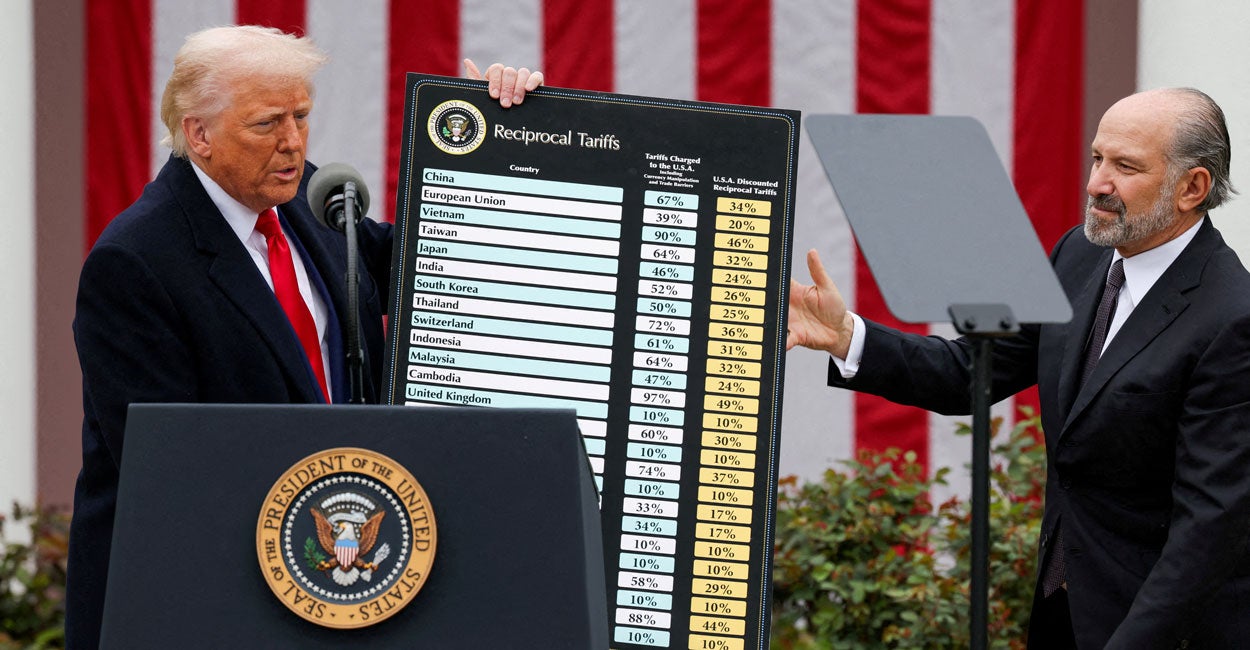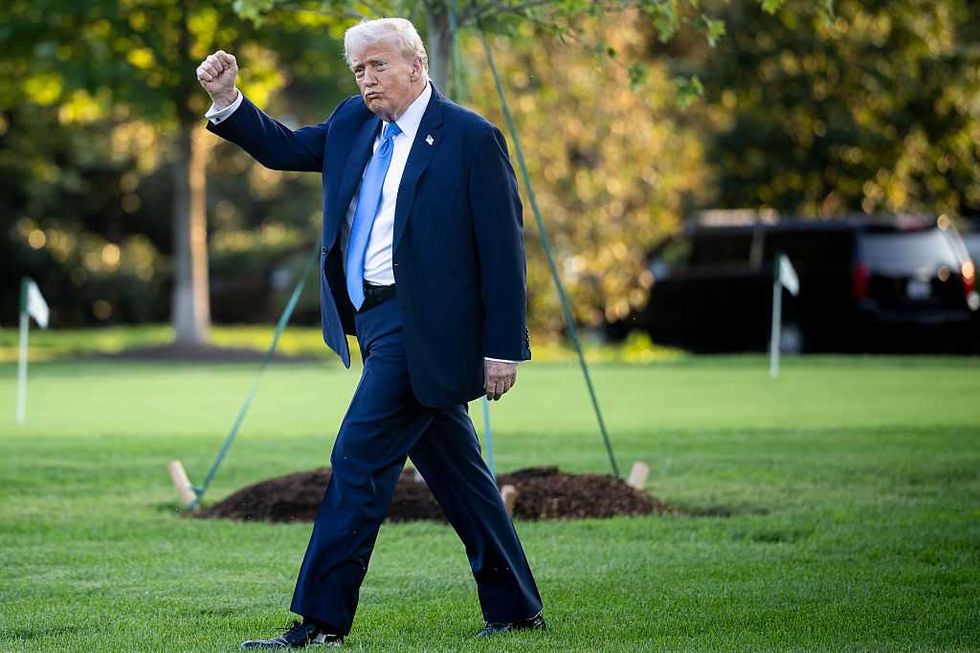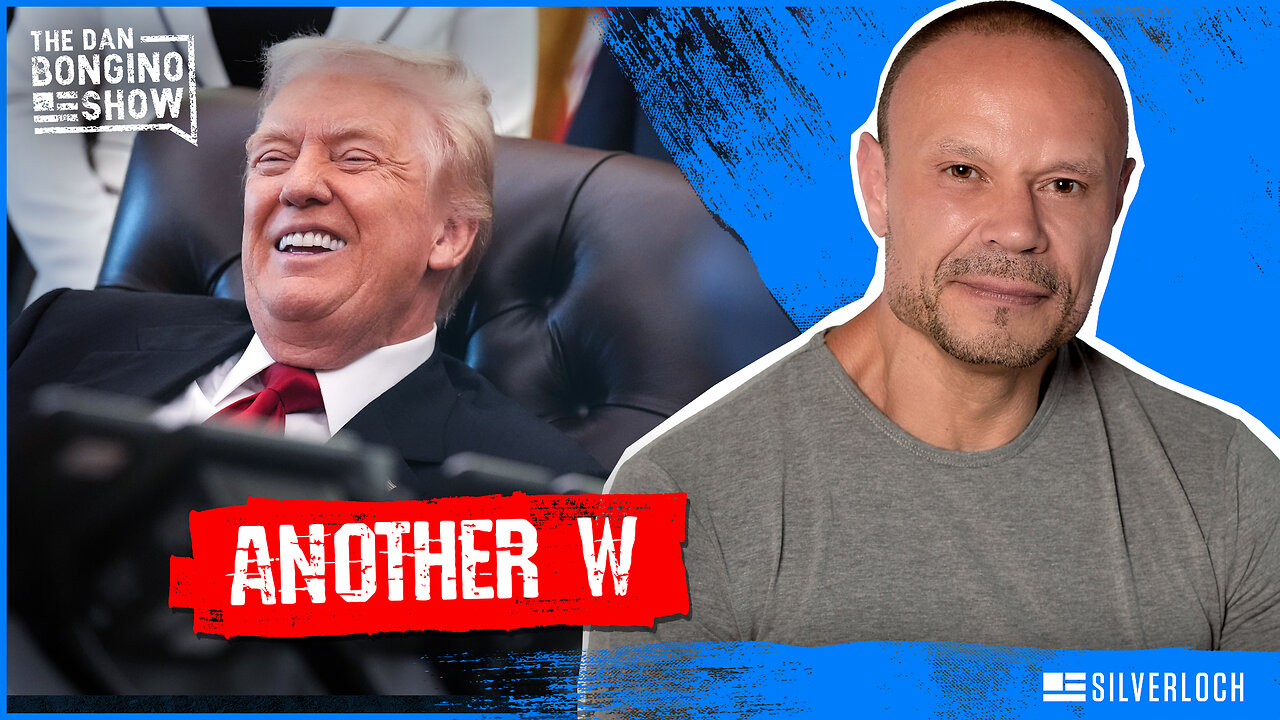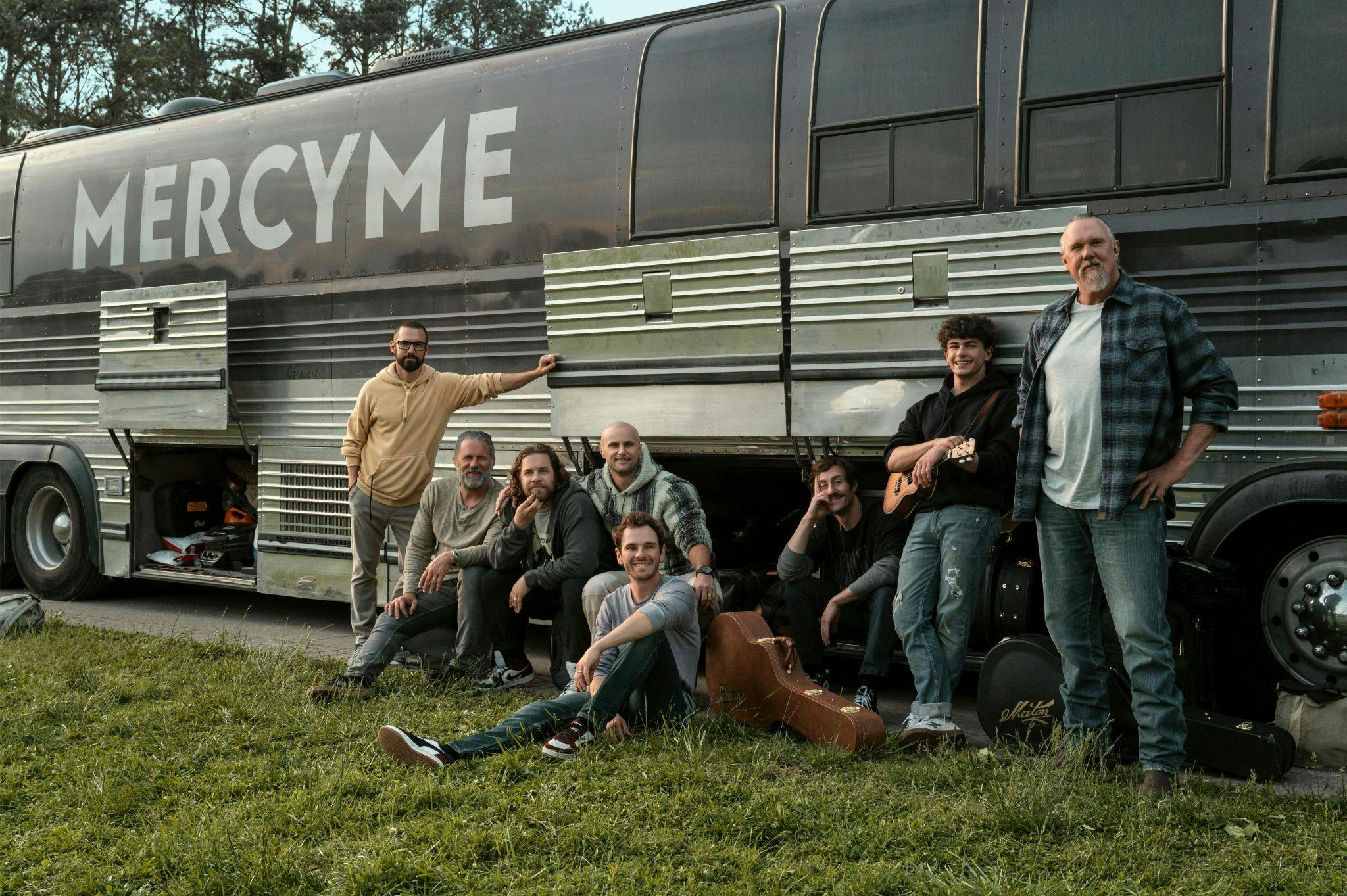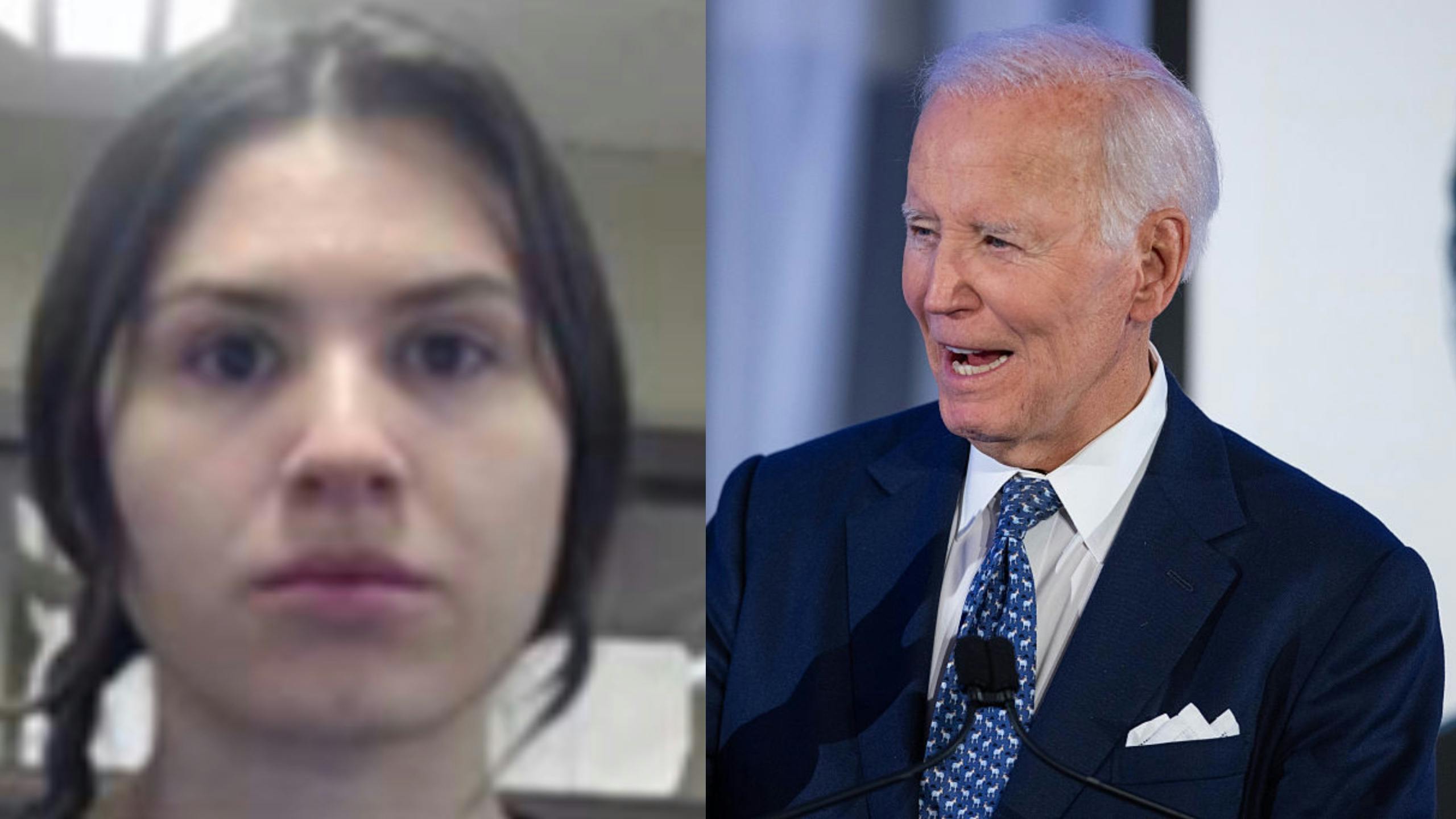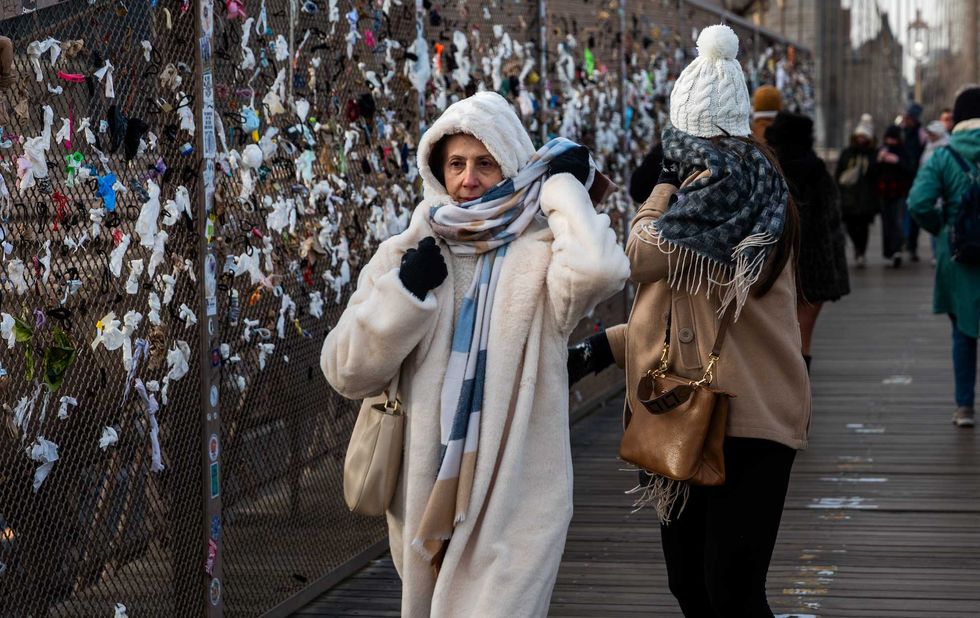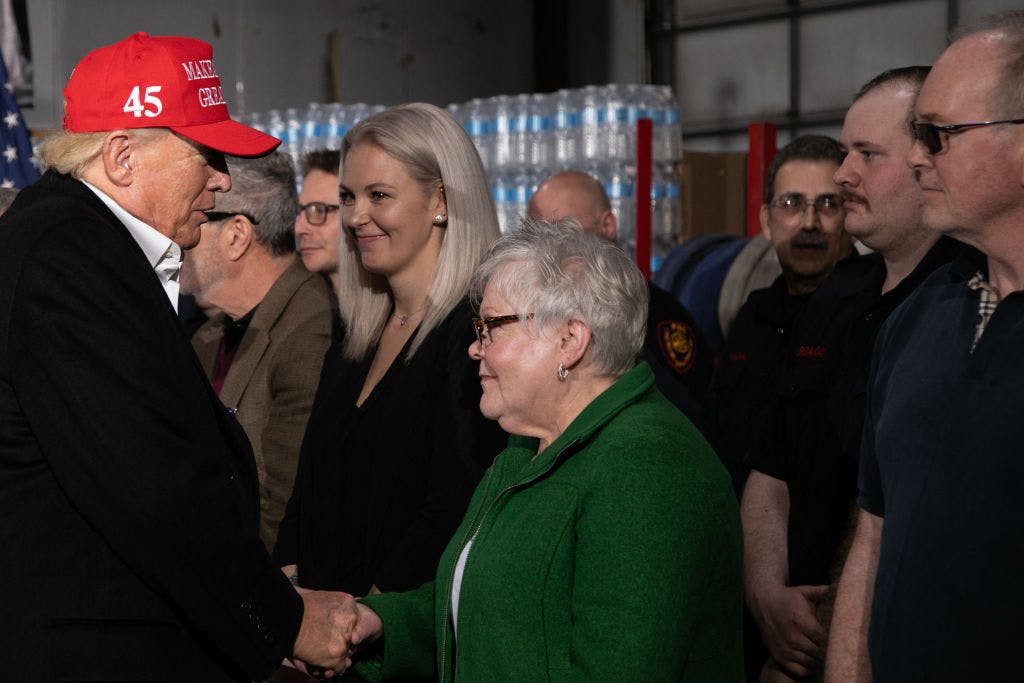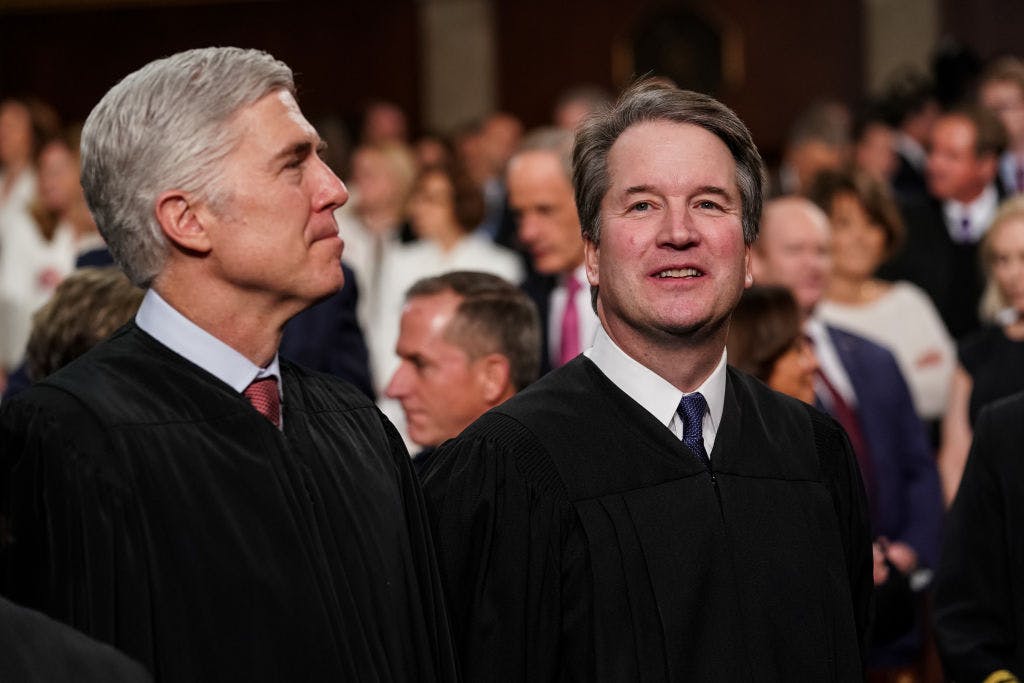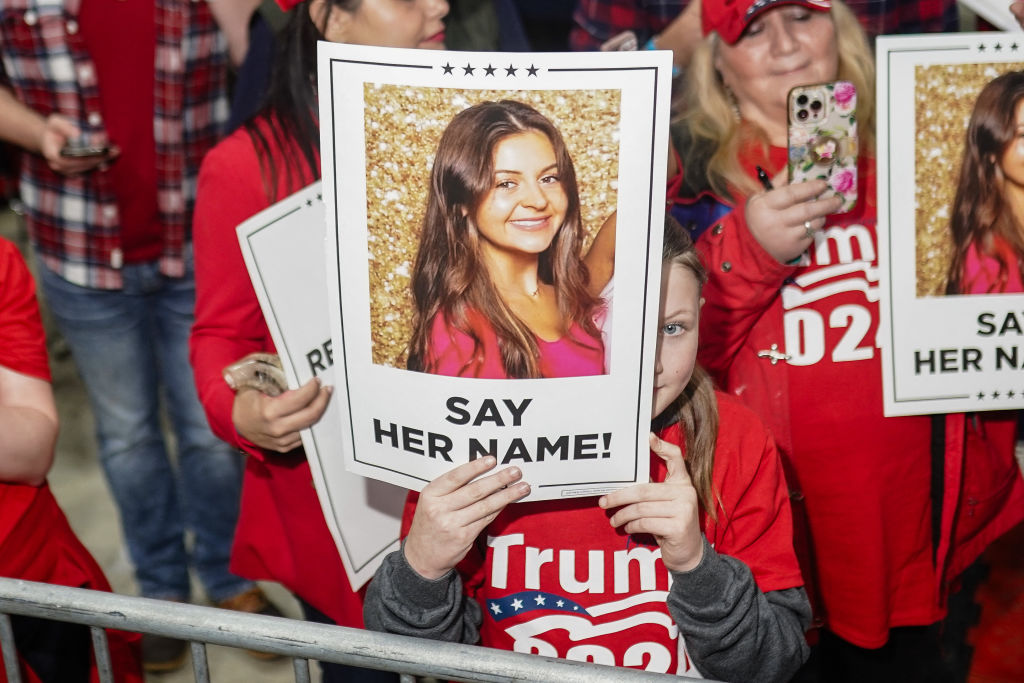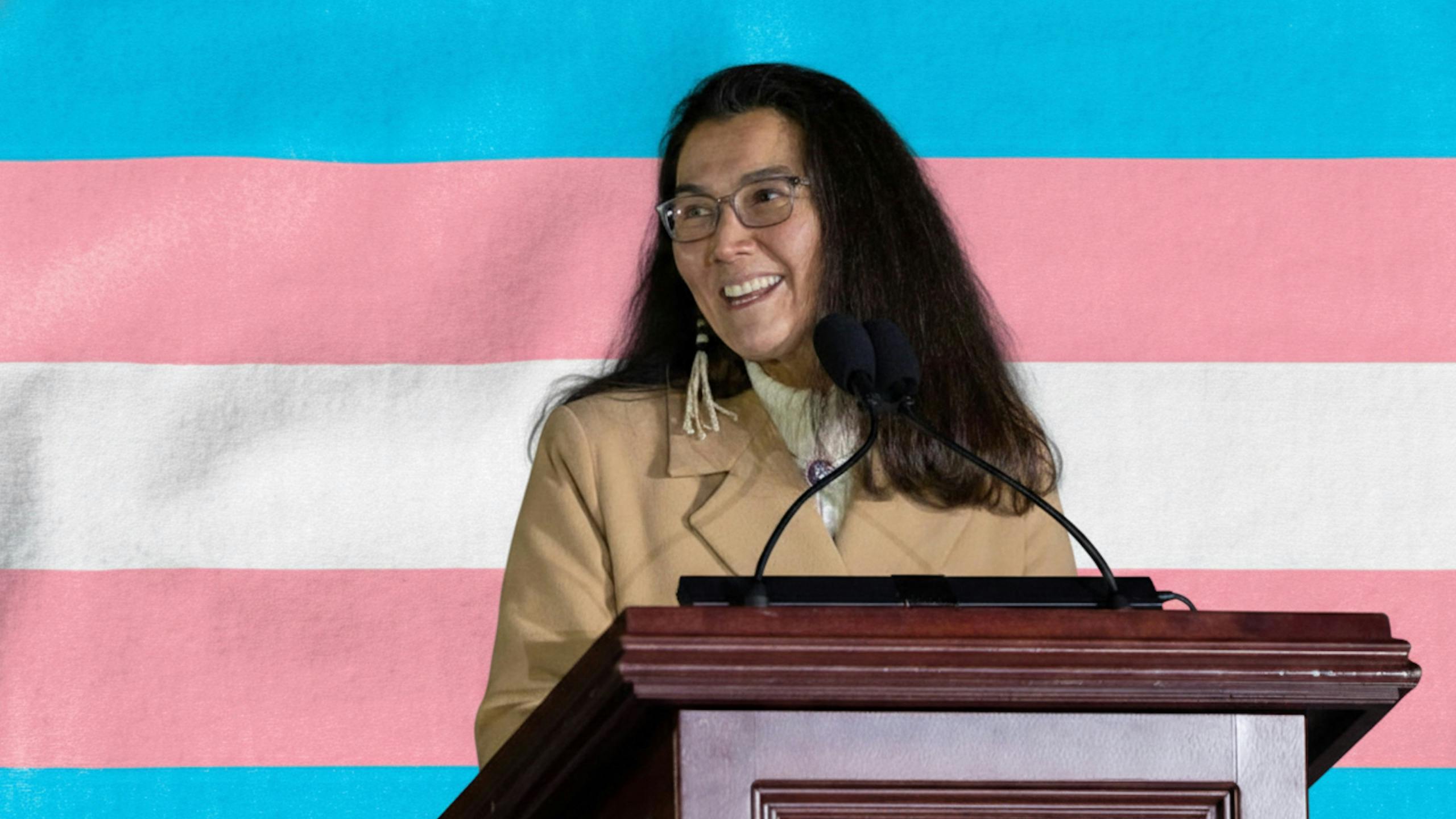The fraud crippling American trucking: 'Ghost' carriers and 'NO NAME GIVEN' driver's licenses issued to foreigners
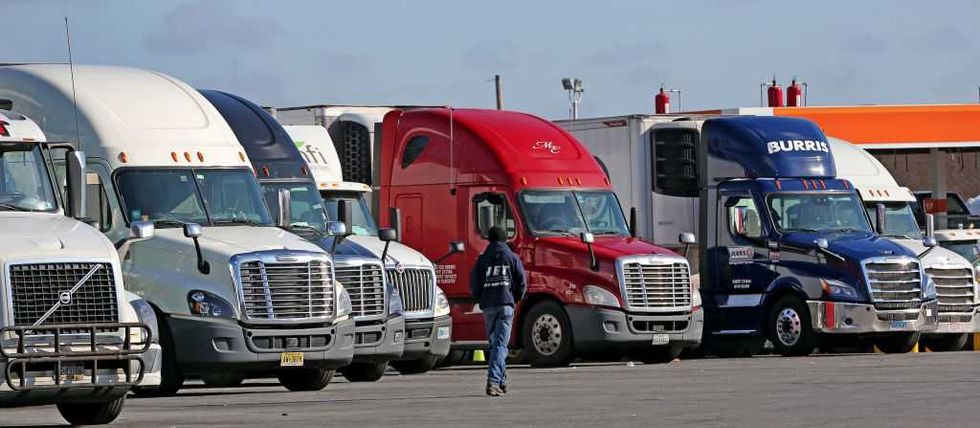
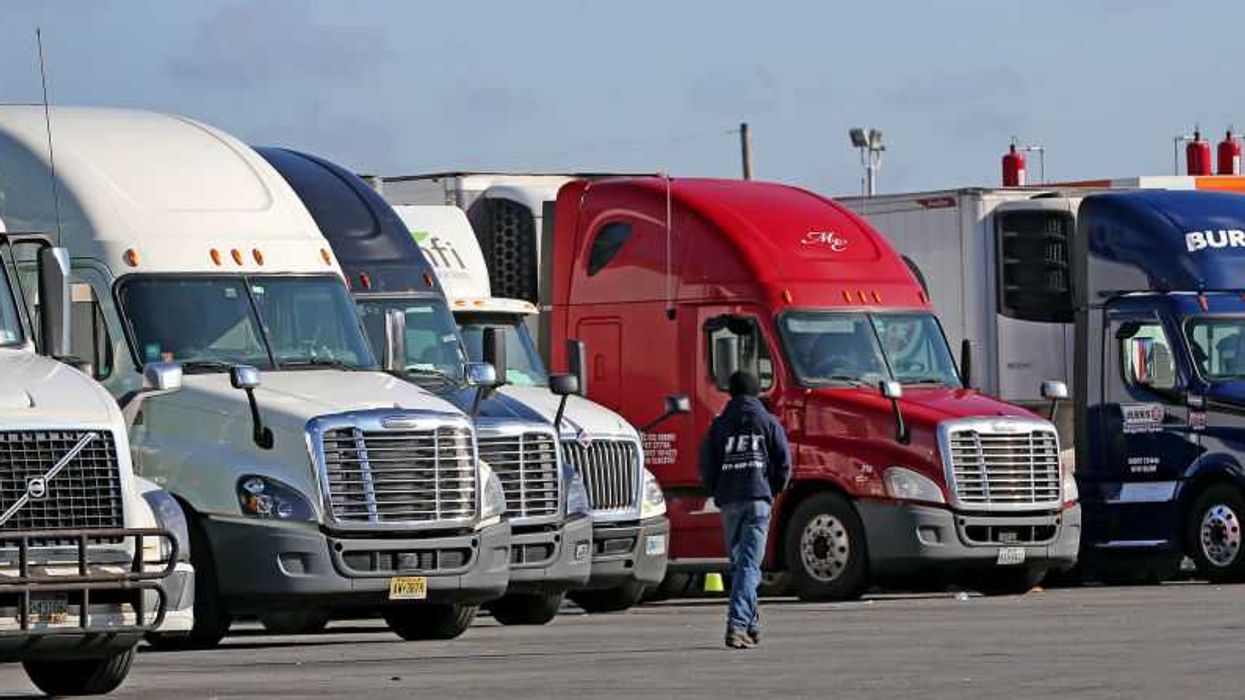
The American trucking industry is facing numerous underreported challenges that directly impact national security, supply chain integrity, and road safety, among other critical issues that were exacerbated by the Biden administration's open-border crisis.
Live Your Best Retirement
Fun • Funds • Fitness • Freedom
While the Trump administration's Department of Transportation, under the leadership of Secretary Sean Duffy, has already moved to address some of the many challenges related to the issuance of commercial driver's licenses, often referred to as CDLs, the American public remains largely unaware of the extent of those looming dangers from years of insufficient oversight in this area.
‘One third of the fleet hauling our freight in this country is not controlled by American citizens.’
The non-domiciled driver takeover
Bill Skinner, the president of Skinner Transfer Corp., a mid-size carrier that has been operating for 93 years, shed light on a portion of that reality in a September 22 X post, where he described a recent collision involving Werner Enterprises, a major American trucking company.
Skinner claimed that a Werner driver with a non-domiciled CDL ran into one of his trucks on the I-80 in Ohio.
"[The] Werner driver decided to change lanes, did it too early," Skinner told Blaze News. "Luckily, minor damage to our truck."
Skinner's driver claimed that the Werner driver required a translator app to communicate, in violation of the English language proficiency requirement for commercial operators. However, the Ohio State Highway Patrol claimed the driver "was able to effectively communicate."
"On September 17, 2025, the Ohio State Highway Patrol investigated a non-injury crash involving a licensed commercial driver, who stated he attempted to make a lane change due to signage while approaching a construction zone," the Highway Patrol told Blaze News. "The driver was able to effectively communicate in English with troopers during the investigation and was cited for an improper lane change after striking the mirror of another commercial vehicle. Following the investigation, the driver was released and allowed to continue operating his vehicle."
"The Patrol remains committed to ensuring safety on Ohio’s roadways through thorough crash investigations and enforcement of traffic laws," the Highway Patrol added.
When asked for clarification about whether the driver needed a translator app, the Highway Patrol replied, "No translator was used during our interaction with the driver."
Werner Enterprises declined Blaze News' request for comment for this story.
RELATED: Hidden phones, earpieces: Five non-English speakers arrested for alleged CDL cheating scheme
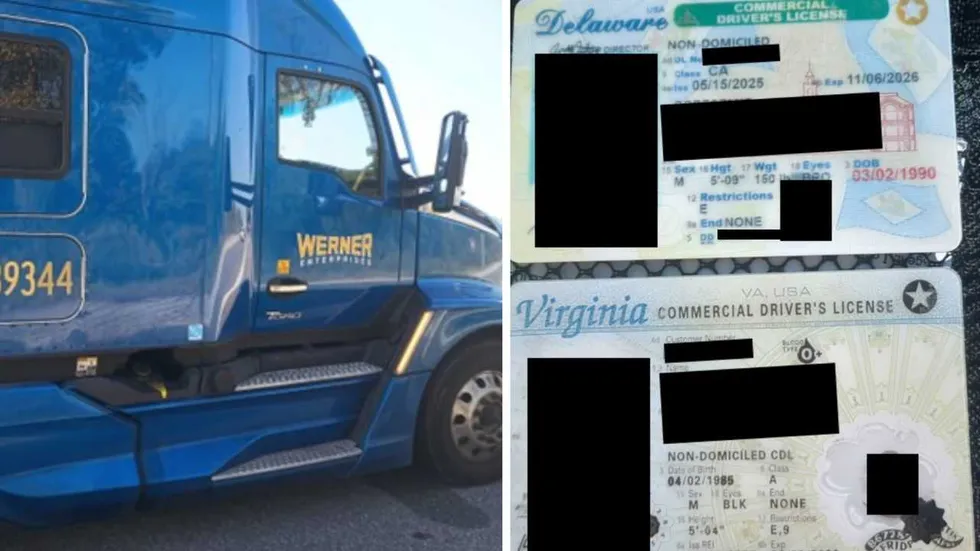 Image source: Bill Skinner
Image source: Bill Skinner
'Ghost' companies dodge consequences
Skinner stated that the accident involving the Werner driver represents only a fraction of a much larger issue facing smaller and mid-size American trucking companies like his own.
Skinner explained that he has "multiple" ongoing insurance claims from other trucking companies whose drivers have caused accidents. He noted that many of the claims involve "ghost" trucking companies that are "set up in America from people overseas." The majority of incidents occur on private property, such as truck stops or shipper and receiver loading docks, which often means law enforcement does not respond to mediate the situation.
'Foreign nationals, especially from India, Uzbekistan, Moldova, they run at rates that are far less than what an American man would drive a truck for.'
When asked about what recourse his company can take to recoup damages by ghost companies, Skinner responded, "Just document what we have and hope and pray somebody has integrity." However, he noted that "very rarely" occurs.
"We end up just eating the cost," Skinner said of accidents involving ghost companies, which he noticed began popping up around 2016 and exploded in 2022. "They're outside of their insurance range. ... You can't track any of these people down, and you never get a payment from the insurance company."
Skinner stated that he has seen instances where a carrier that claimed up to 50 or 60 trucks listed its address as a strip mall gas station located at the edge of Los Angeles. Similarly, ghost trucking companies have reportedly taken over many truck stops, using them as terminals for their operations. Skinner found one instance where nearly 40 trucking companies were registered at the same address.
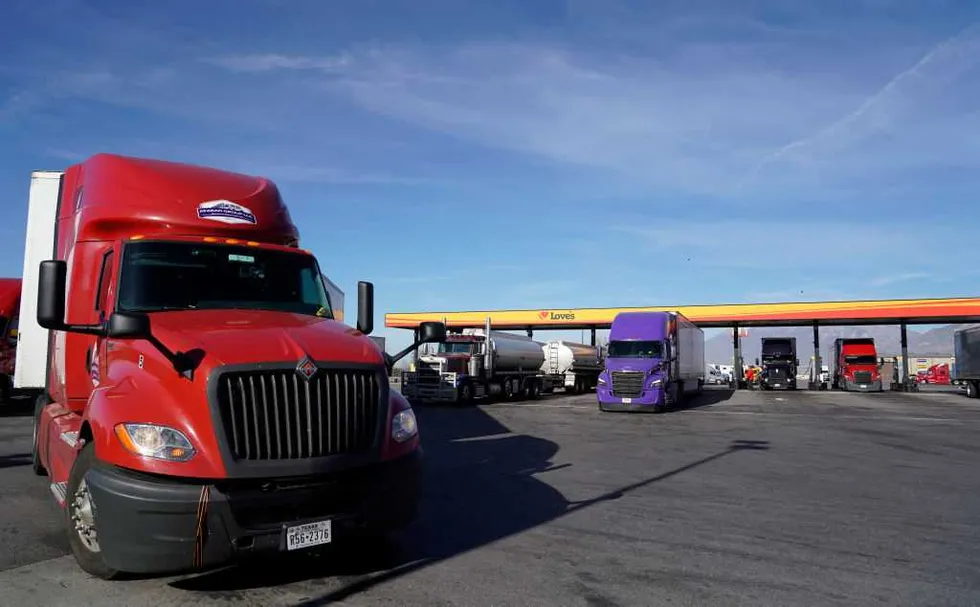 Photo by GEORGE FREY/AFP via Getty Images
Photo by GEORGE FREY/AFP via Getty Images
Those ghost companies typically exclusively pay their drivers on a 1099 model instead of a W-2, allowing employees to evade state and federal income taxes more easily, Skinner said. He stated that one refugee who attended his truck driving school refused to work for his carrier company because it is a W-2 employer.
Skinner told the refugee that he was still required by law to pay taxes on his income even as a 1099 worker.
"The gentleman looked right at me and says, 'We know the program. We do not pay income taxes to state or federal governments anywhere. We'll pay sales tax, but no income tax.' I said, 'What happens when they catch up to you?' [He responded,] 'The governments take four to six years to catch up to us, and by then, we're either gone or we've changed our identity. ... This is the program we've used for the last 20 years,'" Skinner told Blaze News, recounting his conversation with the refugee. "This whole non-domiciled CDL thing, it's tax evasion; it's insurance fraud. Freight theft is huge with all this, double [and] triple brokering, supply chain issues. This thing has got so many tentacles."
The saturation of non-domiciled CDLs is just one of the many issues facing the American trucking industry. Skinner noted that the September accident was not the first time a non-domiciled driver had struck one of his trucks.
Non-domiciled CDLs are licenses issued by a state to a driver who is not a resident of that state. These licenses are intended for American citizens and foreign nationals who are lawfully present in the U.S. However, varying state requirements and inadequate oversight have created opportunities for the exploitation of regulatory gaps and widespread fraud, especially during the open-border crisis.
‘I stumbled upon 500 or so non-domiciled CDLs, and 10% of them probably are “no name given.”’
Smaller American trucking companies are struggling to meet the competitive rates of larger carriers that are hiring "very inexpensive" noncitizen labor, Skinner said. He noted that it is an "unfair playing field" for smaller companies.
Skinner told Blaze News that he wants Americans to know that "one third of the fleet hauling our freight in this country is not controlled by American citizens."
"This is a national security risk and a safety risk," he declared, adding that he "firmly believe[s] that India and China are trying to disrupt our freight network."
Nameless drivers and regulatory loopholes
Danielle Chaffin, a trucking professional, uncovered further concerning issues with CDL issuance, finding that numerous states have provided licenses to drivers who failed to provide their full legal names.
Chaffin discovered CDLs that, instead of displaying the drivers' legal names, read, "NO NAME GIVEN," or various acronyms indicating a similar lack of information, including "FNU" for "first name unknown," "LNU" for "last name unknown," "NGN" for "no given name," and "UNK" for "unknown."
In some situations, these generic placeholders are added when a foreign national's name does not conform to U.S. naming conventions. However, Chaffin argued that within the trucking industry, these placeholders amount to deliberate fraud, noting that there were examples of licenses belonging to individuals who did have a full legal name, but it was not used. Most of the licenses she discovered were issued in California.
“I stumbled upon 500 or so non-domiciled CDLs, and 10% of them probably are ‘no name given,'" Chaffin, who has been tracking the situation since June, told Blaze News.
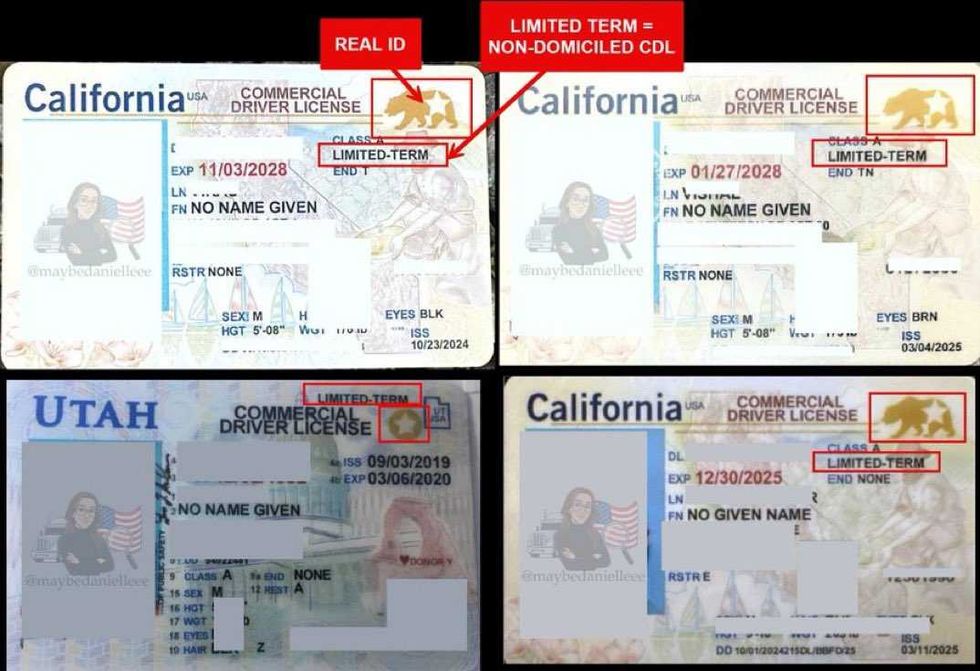 Image source: Danielle Chaffin
Image source: Danielle Chaffin
Oklahoma Gov. Kevin Stitt (R) verified Chaffin’s findings last month when he shared an image of a CDL issued by New York that read, “NO NAME GIVEN.”
Even more concerning, the omitted names went beyond just commercial drivers. Chaffin also uncovered 91 instances since January in which a USDOT number, which companies are required to obtain to operate commercial vehicles involved in interstate commerce, was issued to individuals with no given name.
“They will file the trucking companies with that name, ‘no name given,’ but then as soon as it’s approved, they’ll go back in and update the contact to the full legal name,” Chaffin said.
When asked why carriers would do this, she speculated that the companies might be trying to skirt the matching rules within the DOT’s technology, exploiting a potential loophole in the department’s system.
‘We truly have a broken system.’
Chaffin explained that ghost, also known as chameleon or reincarnating, carriers will register for multiple USDOT numbers. Then, when the company receives penalties, faces high insurance premiums, is subject to a pending investigation or lawsuit, or earns a negative safety score, it switches to a different USDOT number to continue its operations and avoid any consequences.
“When they file for the new [trucking company], they use ‘no name given’ because it doesn’t match with the previous company," Chaffin said.
“They’ll switch the numbers out on the truck,” she continued. “Same trucking company, just a new name and number.”
— (@)
The high cost
These issues only begin to highlight the extent of the system's faults, raising concerns about road safety for everyday Americans and posing a significant national security threat.
“All of the non-domiciled CDLs are foreign nationals,” Chaffin told Blaze News. “The greatest threat in what we’re seeing now is taking the jobs and pay away from the American worker. Foreign nationals, especially from India, Uzbekistan, Moldova, they run at rates that are far less than what an American man would drive a truck for.”
She stated that legacy, family-owned American trucking companies that have been around for decades have been forced into bankruptcy.
Chaffin highlighted another issue with the increase in foreign-operated trucking companies.
“The rings of trucking companies and the technology that they use, most of it is based overseas,” she said. “They have their technology, their data centers — none of that happens in the U.S. And so, they have all of our logistics data, trucks, where they are, what’s on the trucks, what the driver’s doing, all of the infrastructure, where things are going, at what time, when it’s being picked up, when it’s being delivered.”
"We truly have a broken system," she added.
Chaffin credited Duffy for listening to the concerns of those within America's trucking industry.
The DOT secretary announced emergency action in September to drastically limit the eligibility requirement for non-domiciled CDLs. The DOT found numerous instances where non-domiciled CDLs were improperly issued, including to foreign nationals with expired work authorization.
“Truckers keep America running. While the country sleeps, truckers grind through the night to help keep shelves stocked, families fed, and businesses humming. It’s a job that requires grit and dedication. But for too long Washington, D.C., has made work harder for truckers. That ends today. Thanks to President Trump, we’re getting Washington out of your trucks and your business,” Duffy stated.
Blaze News reached out to the state-level DOTs in California, Utah, and New York regarding the no-name CDLs. The Utah DOT did not respond, and the New York and California DOTs deferred comment to their respective Department of Motor Vehicles.
The New York DMV stated that the license shared by the Oklahoma governor was "issued in accordance with all proper procedures, including verification of the individual's identity through federally issued documentation."
"The individual has lawful status in the United States through a federal employment authorization and was issued a license consistent with federal guidelines," the DMV's statement continued. "This document was not issued under the Green Light Law. It is not uncommon for individuals from other countries to have only one name. Procedures for that are clearly spelled out in the U.S. Citizenship and Immigration Services policy manual, and it is important to note that federal documents also include a 'no name given' notation."
The California DMV did not respond to a request for comment.
Like Blaze News? Bypass the censors, sign up for our newsletters, and get stories like this direct to your inbox. Sign up here!
Originally Published at Daily Wire, Daily Signal, or The Blaze
What's Your Reaction?
 Like
0
Like
0
 Dislike
0
Dislike
0
 Love
0
Love
0
 Funny
0
Funny
0
 Angry
0
Angry
0
 Sad
0
Sad
0
 Wow
0
Wow
0


